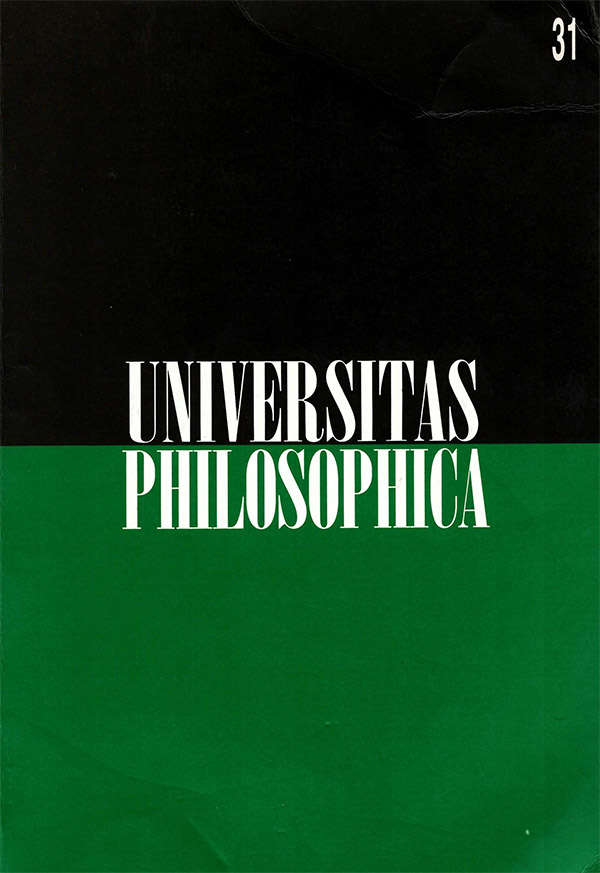Abstract
The aristotelian hypothesis about the existence of a common sensibility is one of the most important points of his theory of perception. With it Aristotle guarantees that the living beeing's sensibility is not a simple mix of dispers sensations, but a unified and indivisible faculty that, for certains effects, is specialized in five external senses. Furthemore, from this hypothesis is pennitted to widden inmensly the field of perception, assigning to the perspective faculty operations as the imagination, the report and the dreams, by a part, and realizing of the act of thought in analogy whith this of the sensation, of the other. The present papen departing of an examination on the use that makes Aristotle on the tenn atcsertats and of a presentation of the various types of sensitives objets that he consideres, is centred in the aristotelian argumentation about common sensibility.This journal is registered under a Creative Commons Attribution 4.0 International Public License. Thus, this work may be reproduced, distributed, and publicly shared in digital format, as long as the names of the authors and Pontificia Universidad Javeriana are acknowledged. Others are allowed to quote, adapt, transform, auto-archive, republish, and create based on this material, for any purpose (even commercial ones), provided the authorship is duly acknowledged, a link to the original work is provided, and it is specified if changes have been made. Pontificia Universidad Javeriana does not hold the rights of published works and the authors are solely responsible for the contents of their works; they keep the moral, intellectual, privacy, and publicity rights.
Approving the intervention of the work (review, copy-editing, translation, layout) and the following outreach, are granted through an use license and not through an assignment of rights. This means the journal and Pontificia Universidad Javeriana cannot be held responsible for any ethical malpractice by the authors. As a consequence of the protection granted by the use license, the journal is not required to publish recantations or modify information already published, unless the errata stems from the editorial management process. Publishing contents in this journal does not generate royalties for contributors.


